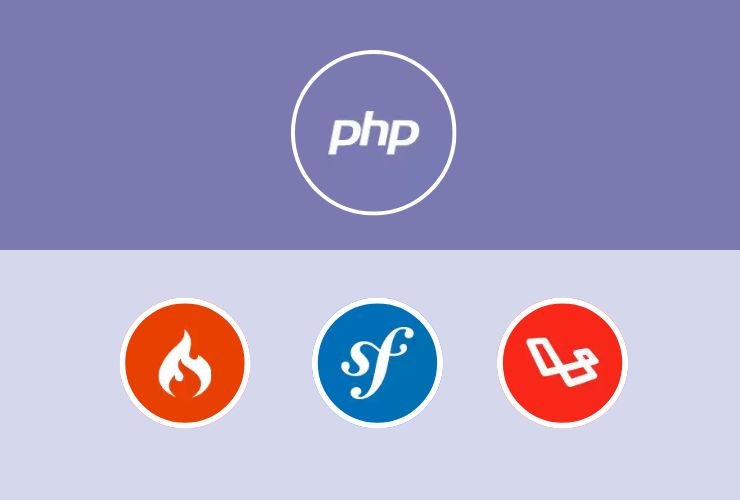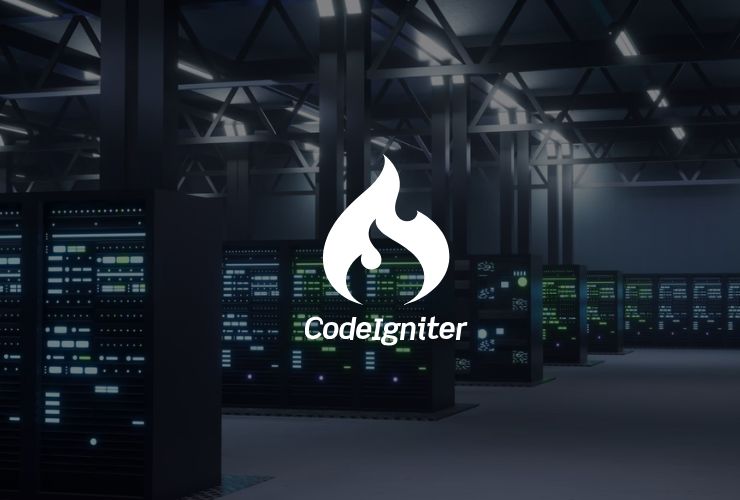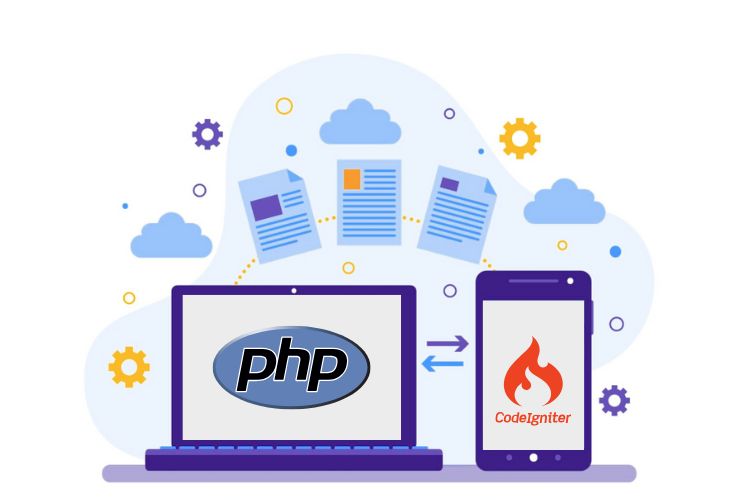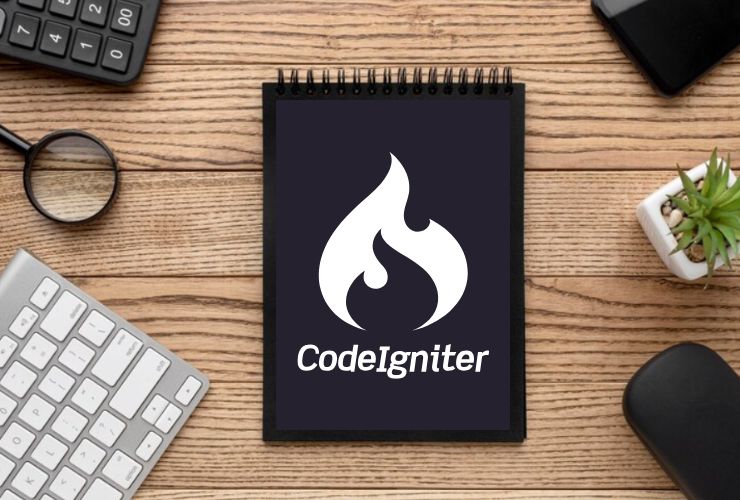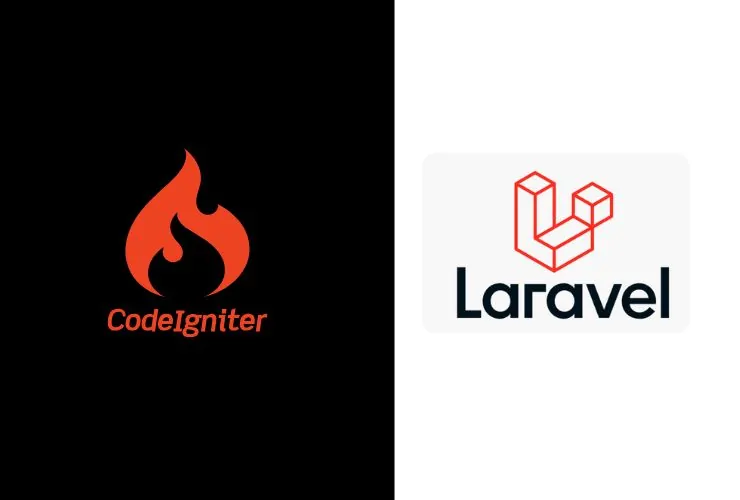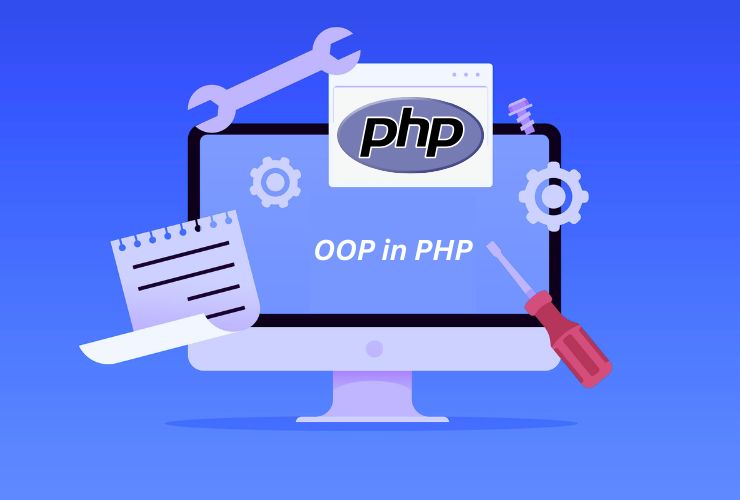PHP remains one of the top programming languages for web development, being used on millions of websites and applications. A rich framework ecosystem allows developers to create powerful, scalable, and secure web applications quickly and effciently. Some of the top frameworks used to develop PHP applications are Laravel, Symfony, and CodeIgniter, due to dependability, community support, and versatility.
1. Laravel: The Developer-Friendly Powerhouse
Laravel has quickly become one of the most popular modern PHP frameworks due to its elegant syntax, complete toolset, community support, and productivity for developers. Laravel aims to optimize developer productivity, allowing developers to build complex applications at high speeds and with high code quality.
Key Features:
- MVC (Model-View-Controller) architecture for organized code organization
- Built-in authentication and authorization systems
- Eloquent ORM for easy database operations.
- Blade templating engine for defining clean, reusable UI components.
- The Laravel community has built a wide range of additional tools, including Laravel Nova (for custom admin panels), Laravel Horizon (for managing queues), and Laravel Forge (deployment tool).
Best For: Complex enterprise applications, SaaS platforms, eCommerce applications, and projects requiring rapid prototyping and developed features.
Why Developers Choose Laravel:
Laravel has a relatively easy learning curve and extensive documentation, with built-in modules to speed up development. The ecosystem has grown tremendously, with extensive community support readily available to search for solutions and integrate third-party modules to increase speed and efficiency.
2. Symfony: Fully Enterprise Ready
Symfony is a very versatile and stable framework for Php and is frequently the choice framework for larger scale enterprise projects. A few major platforms, which you all probably have heard of, such as Drupal, Magento, and eZ Publish, are built entirely on Symfony components for their existing backend.
Key Features:
- Reusable components for PHP, to upgrade to a modular approach
- Highly customizable architecture to accommodate complex business requirements
- Strong support for REST microservices architecture
- Long Term Support (LTS) to provide assurance for enterprise projects
- Large community of developers and support resource of experience
Best For: Enterprise applications, large-scale web platforms, and anything that needs stability and ongoing maintenance.
Why Developers Use:
Symfony shines with its flexibility and reusability. Using Symfony provides developers efficient capabilities to use only required components and limit bloat and overall performance. Enterprises also enjoy Symfony because of its proven long-term support, strong security features, and robust standards of what you need to run mission-critical applications.
3. CodeIgniter: Fast and Easy
CodeIgniter is one of the oldest PHP frameworks, but it is still popular among developers looking for something lightweight, efficient, and low resource-consuming. The minimal configuration to get started and the small footprint make CodeIgniter a good solution for shared hosting and for small projects.
Key Features:
Very minimal configuration required to set up;
- Very quick performance with a small memory footprint;
- Very small footprint, only a few MB;
- Lightweight, very easy to deploy, and maintain;
Best For: Small-to-medium projects, lightweight apps, and when speed and simplicity are desired.
Why Developers Use CodeIgniter:
CodeIgniter is excellent for projects with quick deployment in mind and that do not want the overhead of a large framework. CodeIgniter’s simple design, large documentation base, and easy learning curve makes it a great framework for beginners and for developers maintaining legacy PHP projects.
4. Laravel vs Symfony vs CodeIgniter: How to Choose?
Selecting the right PHP framework depends on several factors: project size, scalability requirements, team expertise, and long-term maintenance goals. Here’s a quick comparison:
| Feature / Framework | Laravel | Symfony | CodeIgniter |
|---|---|---|---|
| Ease of Learning | High | Moderate | Very High |
| Performance | High | Very High | High |
| Scalability | High | Very High | Moderate |
| Community Support | Large & Active | Large & Professional | Moderate |
| Best Use Case | SaaS, Enterprise apps | Enterprise apps, APIs | Small projects, MVPs |
Guidelines for Selection:
- Laravel: Choose for rapid development, elegant syntax, and a rich ecosystem of tools.
- Symfony: Best for enterprise applications, projects requiring long-term support, and highly customizable solutions.
- CodeIgniter: Ideal for small, lightweight applications with minimal configuration and fast deployment.
5. Other Considerations for Choosing a PHP Framework.
When looking at a framework you should consider:
- Complexity of the Project: Symfony’s robustness is an advantage for enterprise systems, whereas new startups could lean towards Laravel for rapid prototyping.
- Knowledge of the Team: Developers who can work with MVC architecture may be more easily able to code with Laravel or Symfony, while CodeIgniter has a shorter learning curve.
- Performance Requirements: For high-traffic applications Symfony’s better performance is found as a result of the architecturally optimized components.
- Community and Ecosystem: In terms of community and ecosystem, Laravel and Symfony have large communities that offer hundreds of modules for pre-built reusable functionality, plugins to extend official functionality, as well as paid professional support.
Conclusion
Laravel, Symfony, and CodeIgniter are all great PHP frameworks each with their own unique strengths that may be applicable to certain project needs. Laravel is very easy to pick up and developers would likely get the most features out of the box. Symfony has enterprise-grade flexibility, and stability; while CodeIgniter a lightweight implementation that is probably the simplest to use for backend coding.
When choosing between frameworks developers and companies should carefully consider project requirements, growth capabilities, and the expertise of the team delivering and for the future, to select the framework that will provide a high performance, secure, and maintainable php application. The framework is not just about the code; it is about great future potential and success, development efficiencies, and building applications that grow with the organization aspirations.
Build High-Performance PHP Applications with Empirical Edge
Choosing the right framework is critical to your project’s success. Empirical Edge helps businesses select, develop, and optimize PHP solutions using Laravel, Symfony, or CodeIgniter based on their unique needs.
Frequently Asked Questions
Symfony is often preferred for large-scale enterprise projects because of its stability, customization options, and long-term support.
Developers favor CodeIgniter for its minimal configuration, small footprint, and quick performance, making it ideal for small to medium projects.
The best choice depends on project size, scalability needs, team expertise, and long-term maintenance goals.

